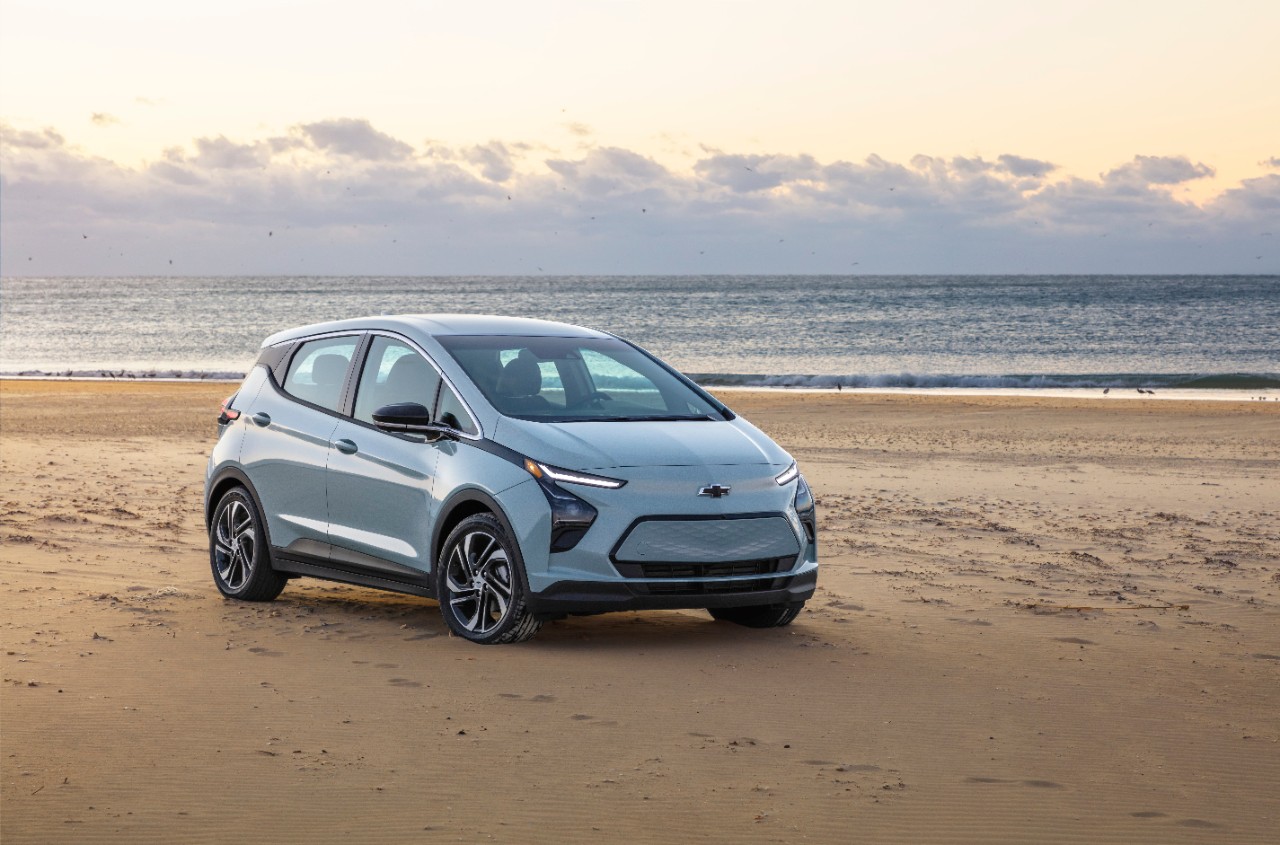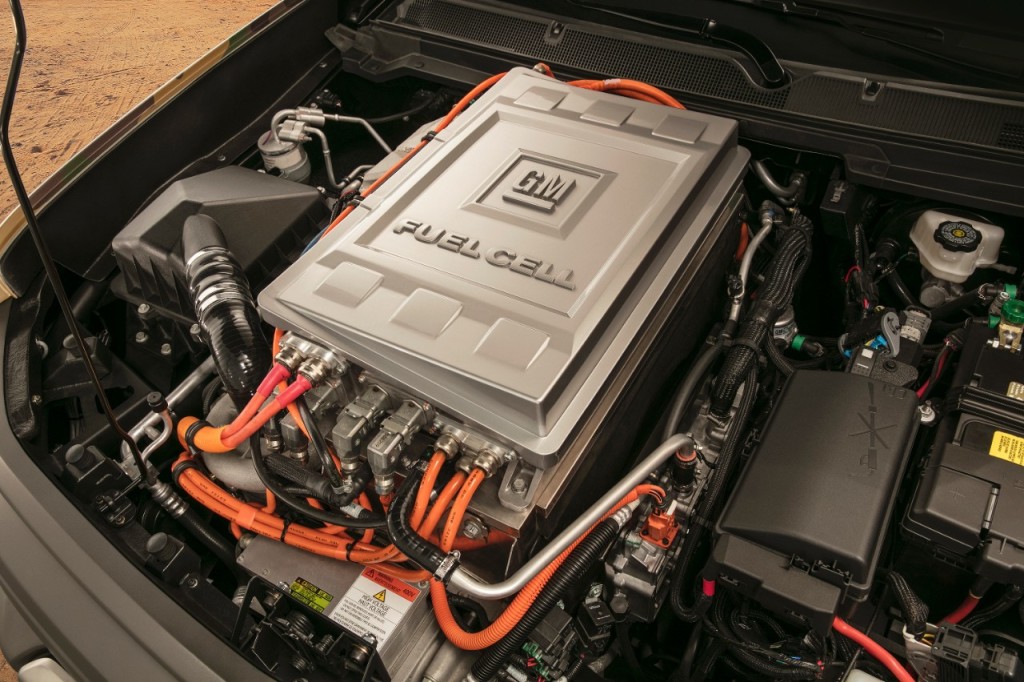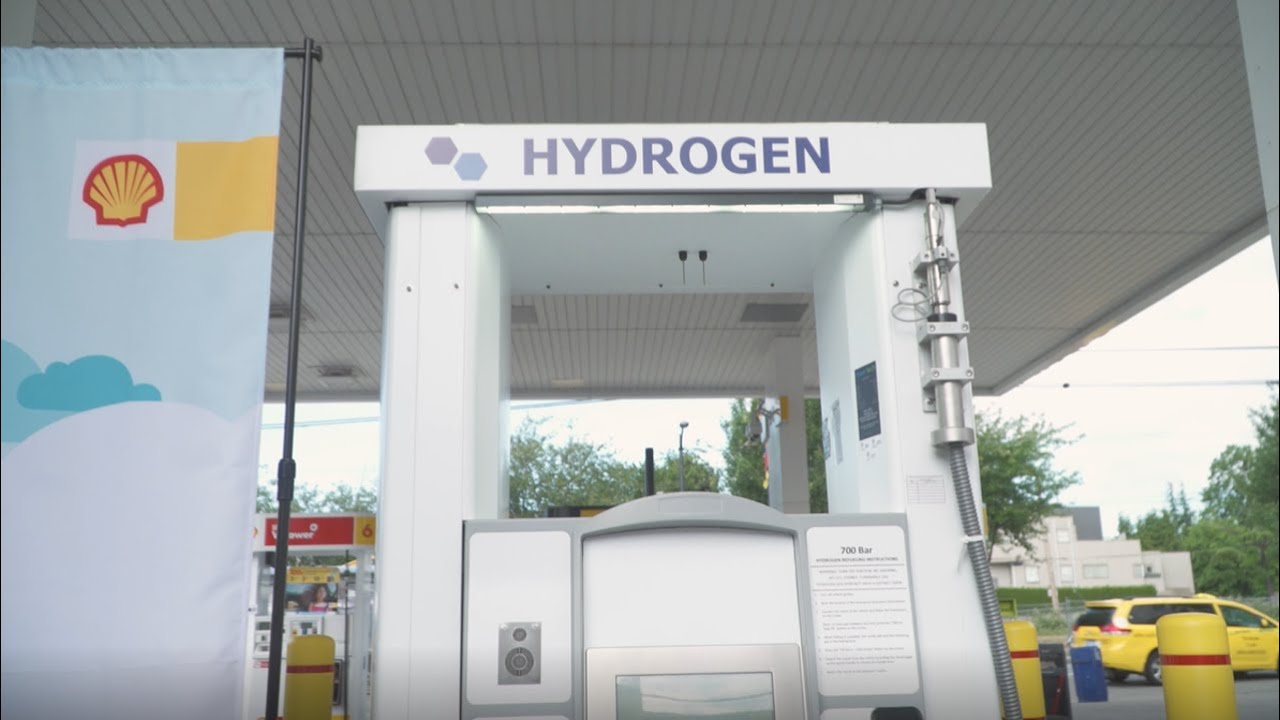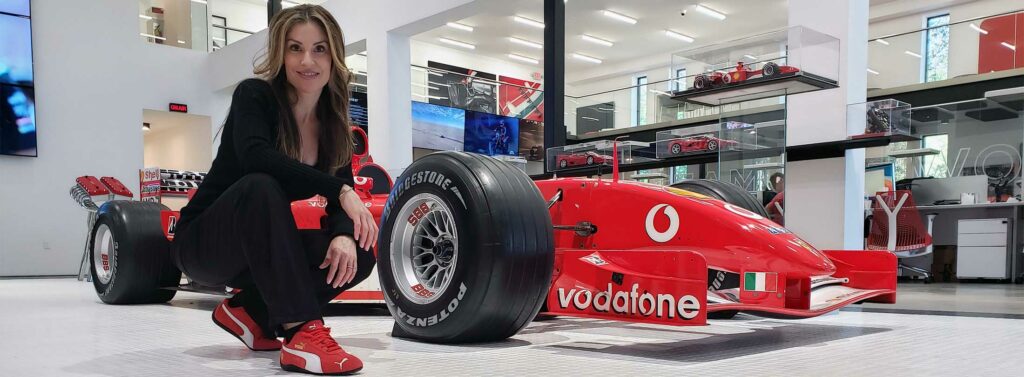By AutomotiveWoman, Automotive & Motorsport Content Creator
In a recent development that has sent shockwaves through the automotive industry, General Motors (GM) CEO Mary Barra has made a seismic decision to steer the company’s focus away from electric vehicles (EVs) and onto the path of hydrogen fuel cell technology. Let’s dive a little deeper into GM’s strategic pivot, considering its implications, partnerships, and technological advancements, while keeping an eye on the dynamic landscape of the automotive world.
- GM’s CEO shifts focus from EVs to hydrogen, impacting the auto industry.
- GM’s past hydrogen experiments offer valuable experience.
- GM leads in hydrogen fuel cell innovation and tech collaborations.
GM’s Electric Odyssey

For a while, GM was firmly on the EV bandwagon. They unveiled a range of electric cars, with the Chevrolet Bolt standing out as an affordable, high-quality option. Ambitious plans were in motion to electrify a significant portion of their lineup by 2025, encompassing brands like Chevrolet, GMC, Buick, and Cadillac. The competition was fierce, with industry titans like Tesla and emerging stars like Lucid Motors and Rivian.
The Hydrogen Horizon
However, Mary Barra’s recent decision has veered GM off the electric path and towards hydrogen fuel cell technology. This pivot is no mere whim; it signifies GM’s belief in hydrogen’s potential to surpass EVs in the long run. Hydrogen fuel cells, in contrast to battery EVs, generate electricity onboard using hydrogen gas and emit only water vapor. They offer unique advantages, such as rapid refueling and potentially longer ranges.
GM’s Hydrogen History

GM is no stranger to hydrogen fuel cell technology. They’ve experimented with it before, notably with the Chevrolet Colorado ZH2, a hydrogen-powered truck developed in collaboration with the U.S. Army. These early endeavors could provide GM with a head start in the hydrogen race.
Tesla and the Domino Effect
This shift in GM’s strategy could have ripple effects across the industry. Tesla, the EV giant, might find itself with one less direct competitor in the EV space. However, it could also prompt Tesla and others to reconsider the potential resurgence of hydrogen as a formidable alternative to electricity. Companies like Toyota and Hyundai have already dabbled in hydrogen fuel cells. GM’s pivot might inspire more manufacturers to rethink their strategies, potentially leading to a divided market between electricity and hydrogen.
Roadblocks Ahead

But the road to hydrogen has its challenges. Hydrogen refueling infrastructure is underdeveloped compared to the sprawling EV charging network. Creating this infrastructure will demand substantial investments and time. Additionally, while hydrogen fuel cells produce zero emissions, hydrogen production itself can be carbon-intensive. To make hydrogen truly sustainable, greener production methods, such as renewable-powered electrolysis, must become widespread.
A Global Shift
On a global scale, some countries have embraced hydrogen, like Japan and Germany. Japan, in particular, views hydrogen as a cornerstone of its future energy mix, aiming to become a hydrogen society by 2040. GM’s decision aligns well with these markets, potentially opening doors to international collaborations and partnerships.
Perks for Consumers
For consumers, a transition to hydrogen could offer numerous benefits. Hydrogen fuel cell vehicles can refuel in just a few minutes, addressing one of the major pain points associated with EVs: long charging times. Furthermore, they may offer longer ranges than many EVs, appealing to those who experience range anxiety or frequently undertake long journeys.
GM’s Quest for Innovation
GM’s shift towards hydrogen is not merely a change in direction; it’s an innovation-driven transformation. By partnering with Nel, a hydrogen technology company, GM is planning the construction of an electrolyzer factory in Michigan. Electrolyzers are essential in producing hydrogen fuel using renewable energy sources, contributing to greener hydrogen production.
Leading the Charge in Innovation
Furthermore, GM is actively exploring next-generation hydrogen fuel cell materials to enhance efficiency, reduce costs, and extend the lifespan of fuel cell systems. Collaborations with tech experts and academic institutions are fostering a culture of innovation, potentially pushing the boundaries of what’s achievable in fuel cell technology.
GM’s pivot towards hydrogen is more than just a change in direction; it’s a holistic transformation that involves technology, infrastructure, and a commitment to environmental sustainability. It’s a journey filled with groundbreaking discoveries, innovative partnerships, and the relentless pursuit of a cleaner, greener automotive future.
IMAGES: GM, SHELL
Subscribe to our channel: www.youtube.com/@AutomotiveWoman





